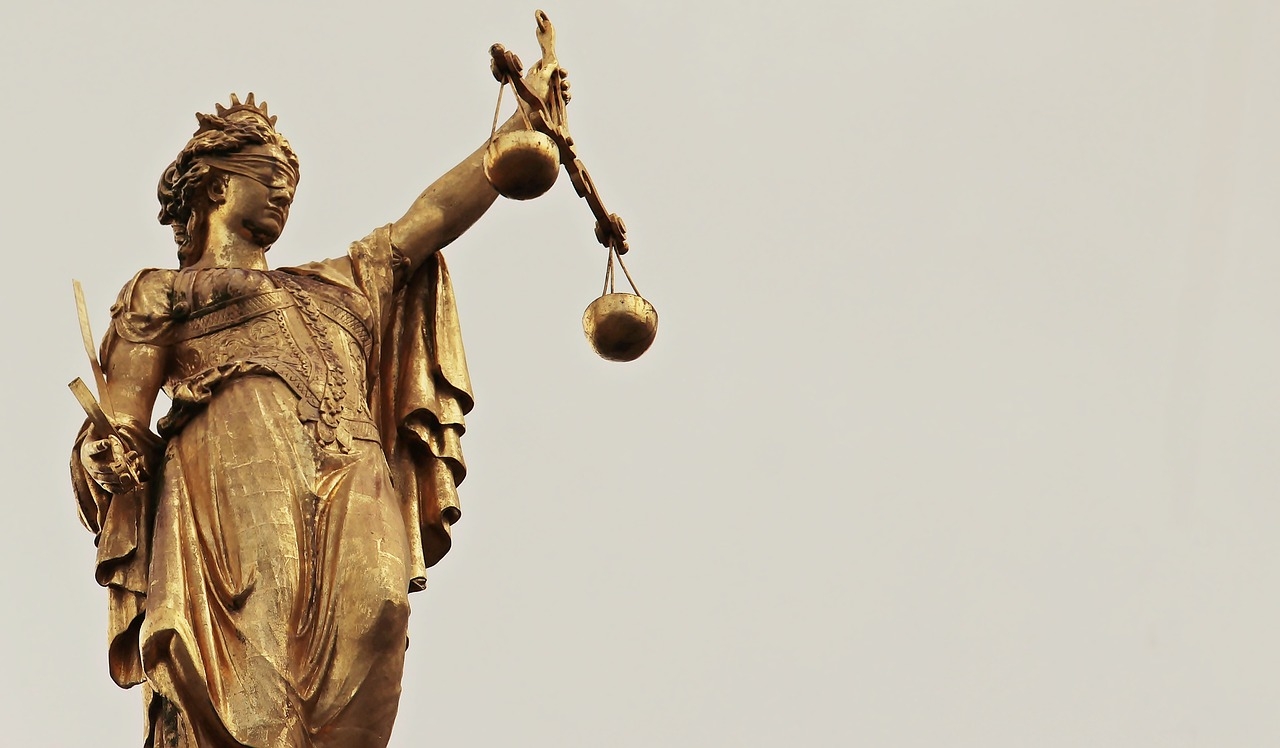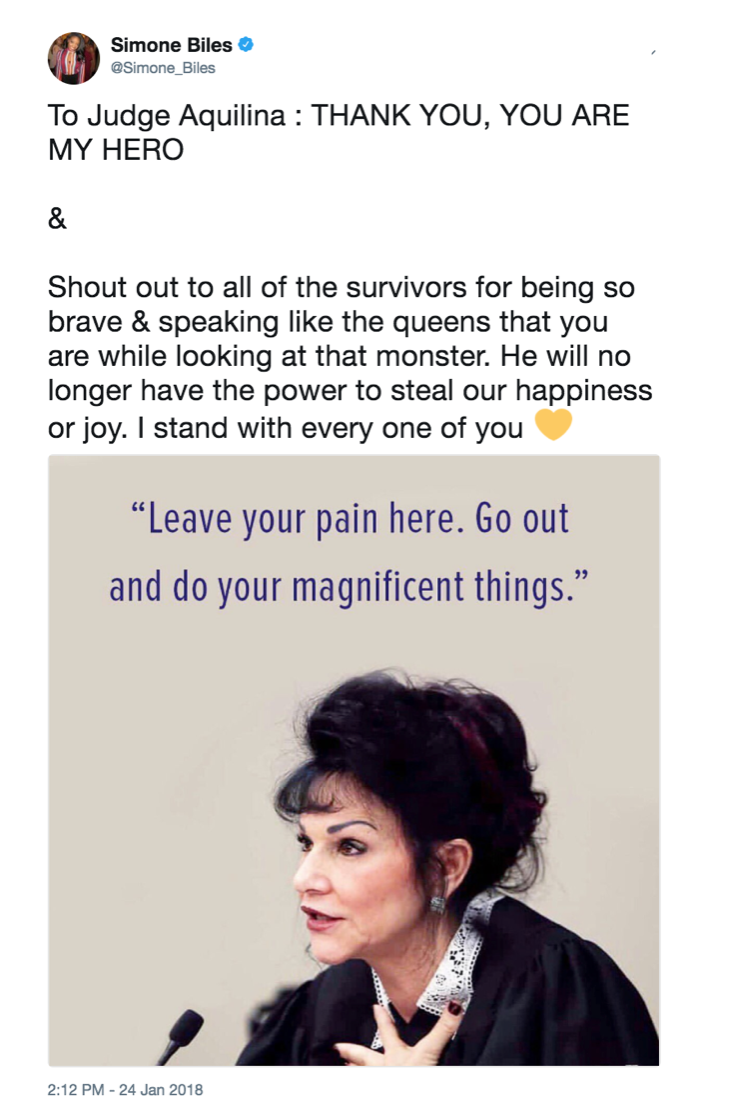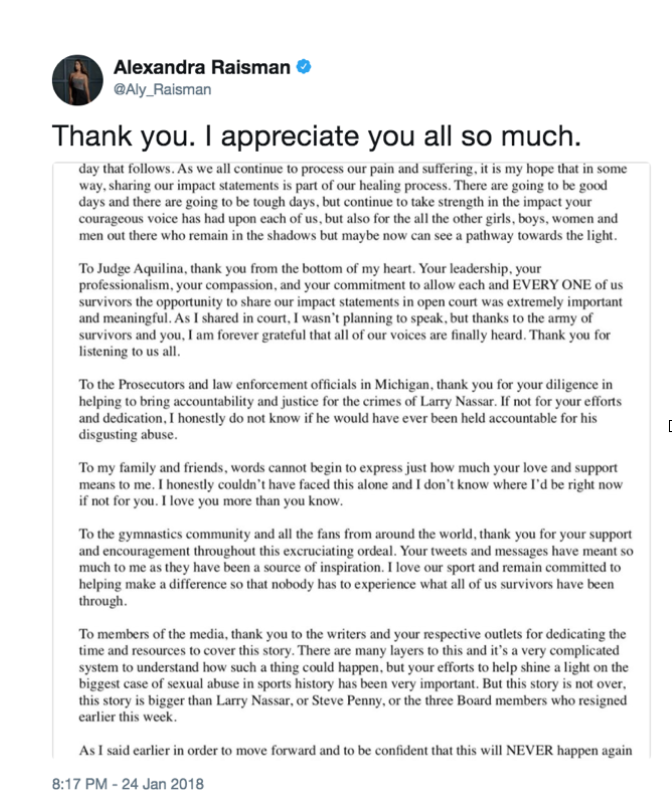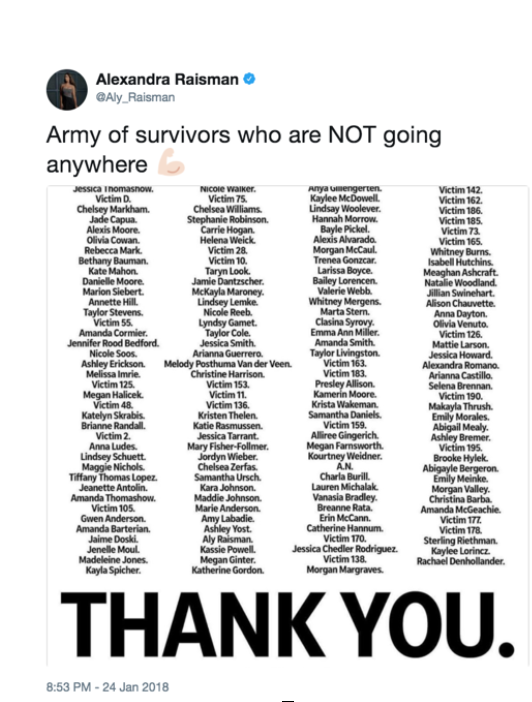
Judge Aquilina: A New Perspective on Sympathy
Former USA Gymnastics doctor Larry Nassar has been sentenced to up to 175 years in prison for sexually assaulting young girls and gymnasts, including Olympians.
The once-doctor for USA Gymnastics and Michigan State University, admitted to abusing his position as a trusted medical professional in order to molest young women and girls. He pled guilty on seven counts of sexual assault, but an appalling total of 150 people came forward with allegations against Nassar at the trial.
“It is my honour to sentence you.”
After hearing statements from over 150 brave women and girls, Judge Rosemarie Aquilina has sentenced the former doctor to a lifetime in Prison. It’s important to note that Aquilina did more than her duty as an official of justice: she offered empathy and support to each individual who shared their traumatic experiences to not only the entire world, but also their abuser. This kindness has deservedly earned a great deal of attention from those who followed the case.
Victim after victim, sickening statements of abuse and assault flooded the courtroom. Voices that were once silenced were now being heard.
Some quotes from Judge Aquilina as she spoke to the victims include:
“You are no longer victims, you are survivors.”
“You define goodness… you talked about being in pitch blackness, your voice just turned on the light.”
“You’re not alone.”
“Your voice went unheard and I promise you, it’s not unheard now.”
“You can’t give them back their innocence, their youth” said Aquilina as she addresses Nassar in court.
This wasn’t just Nassar’s trial—for many, this was a day to find closure for the trauma they have had to carry since their childhood.
Judge Aquilina’s words deserve to be addressed and celebrated; she did more than just allow the victims to share their story, she respected the power of their voices and she gave them an audience that would listen.
“I just signed your death warrant,” Aquilina declared as she sentenced Nassar.
The Michigan judge has since come under some scrutiny. Her remarks may have made her a media sensation but have also exposed her to criticism. Those who condemn Judge Aquilina argue that her actions were dramatic and “disgraceful”. After reading a letter of impact from Nassar in court, she tossed the paper aside — it’s hard to feel sympathy for a child sex offender with over 150 women speaking against him.
The voices praising Judge Aquilina are just as loud.
Olympic gold medalist and one of the many victims of Nassar, Siome Biles has called Judge Aquilina her “hero” over twitter.

Another Olympic medalist and victim of Nassar, Aly Raisman, shared a statement thanking Aquilina for her “leadership, professionalism, compassion and commitment” on twitter.

Aly Raisman also shared a list of survivors of Nassar’s sexual abuse, thanking them and emphasizing that they are “NOT going anywhere.”

Sexual violations against children and youth are a pressing concern in Canada, the United States, and internationally. These offences leave victims with long-term negative effects on the victims’ physical, emotional, and psychological health.
In Canada, 1 in 5 offences involving a child or youth victim reported to police is a sexual offence.
In the United States, 1 in 10 children will be sexually abused before their 18th birthday.
And 3 out of 4 adolescents that have been sexually assaulted were victimized by someone they knew.
In developing countries, the rates of sexual abuse amongst adolescents is much higher. Africa has the highest prevalence rate at 34%. That’s 1 in 3 children.
And these are just the reported incidents; approximately only 30% of sexual assault cases are reported to authorities.
Judge Aquilina’s courtroom sent a powerful message. We will no longer tolerate those who use their position of power to molest adolescents. Judge Aquilina, as well as the 156 women who came forward will always be recognized for their strength and courage. Critics may say that Aquilina should have exercised more emotional distance, but her courtroom has reminded us that positions of power are not guarantees of our forgiveness, and that a survivor’s voice is worthy of our attention.







